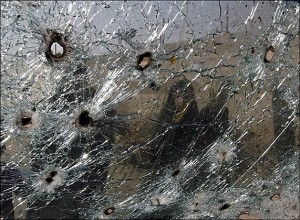From the Gospel of John:
You do not understand that it is better for you to have one man die for the people than to have the whole nation destroyed.
(From the Daily Office Lectionary – John 11:50 (NRSV) – February 26, 2014.)
 The words of Caiaphas the high priest are reported by John as a prophecy that Jesus’ death would be an atoning sacrifice, that he would “die for the nation, and not for the nation only, but to gather into one the dispersed children of God.” (vv. 51-52) But I read them this morning as nothing more than political calculation.
The words of Caiaphas the high priest are reported by John as a prophecy that Jesus’ death would be an atoning sacrifice, that he would “die for the nation, and not for the nation only, but to gather into one the dispersed children of God.” (vv. 51-52) But I read them this morning as nothing more than political calculation.
More years ago than I care to remember I took a college class in political history. One of the things I learned is that nearly all decisions of government include two major components: political calculation, which is always based on past experience, and profound ignorance of current conditions and future potentials. Despite prodigious amounts of fact finding and data gathering, that ignorance remains a factor. There is always “one more fact” that could have been learned. And, more often than not, a “known fact” is not appreciated because prejudice, preconception, or inexperience blinds the decision-maker to its importance.
I suspect the lawmakers in Kansas and Arizona, where legislation has recently been enacted by one or both houses of the state legislatures permitting service providers, both private and public, to refuse service to gay, lesbian, and transgendered persons on the basis of “sincerely held religious belief,” have been surprised by the responses their actions elicited. They may have expected some reaction from the political left. It’s possible they anticipated some objection from more liberal religious bodies (such as the Episcopal Church). I don’t think they had a clue that the business community, represented by Apple, Delta, American Airlines, and other corporations, would oppose their action. I don’t know what data gathering they did before enacting those proposed laws, but they either failed to get the business data or failed to understand the data they got.
I could criticize what they did — these bills are, in my opinion, deeply flawed in several respects — but my thought today is that in our personal lives we do much the same thing. We make personal decisions on the basis of past experience in an atmosphere of profound ignorance; there is always something we don’t know. St. Paul was speaking of the eschaton, the end of time, about which we can know nothing when he wrote, “We see through a glass, darkly” (1 Cor. 13:12, KJV) but the truth is that our vision is always obscured. The glass through which we look at the present or the future is always darkened; there is always something we don’t see, some fact or bit of data of which we are ignorant either through lack or through misinterpretation.
So what does one do? Fail to decide? Fail to act? No, one cannot be paralyzed by fear. The only answer is to decide, to move forward in faith, to hope for the best. I don’t fault Caiaphas for his political calculation or for his ignorance; I am no different. I can hope I make better choices, but the process by which and environment in which human decisions are made has not changed in 2,000 years. Political calculation and profound ignorance are still the norm and probably will be until we get to the other side of Paul’s darkened glass.
====================
Father Funston is the rector of St. Paul’s Episcopal Church, Medina, Ohio.



Leave a Reply